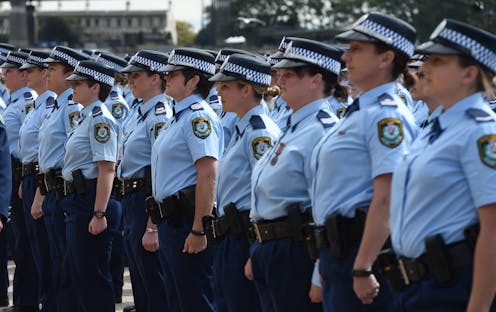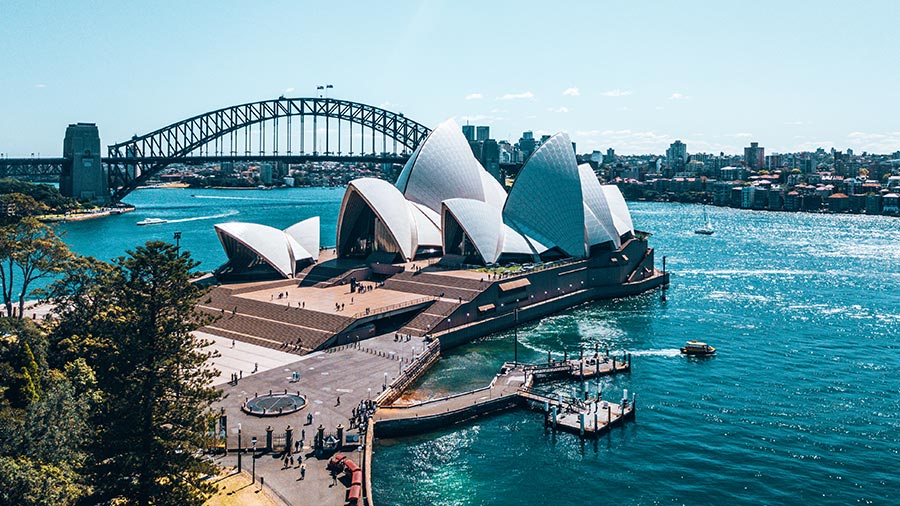If you’re thinking of moving to Australia, there are things about living in the Land Down Under that we feel you should know about.
1. Living costs
Living expenses in Australia are moderately expensive, and foreigners moving here should not expect to save a lot of money. The majority of your monthly expenses will go towards housing. This is especially true for ex-pats residing in, or around, the capital city of Sydney. Daily expenses such as groceries or eating out will also add up over time, although this cost can be reduced significantly dependent on your lifestyle.
Overall, the average cost of living for a single ex-pat in Sydney, the country’s most expensive city, is around 1,440 AUD (1,000 USD) per month, not including rent. A family of four can expect this number to run to nearly 5,220 AUD (3,600 USD).
Read on to learn more about what makes up these costs and ways ex-pats can save:
- Groceries and eating out: AUD 80 to $280 per week
- Gas and electricity: AUD 35 to $140 per week
- Phone and internet: AUD 20 to $55 per week
- Public transport: AUD 15 to $55 per week
- Car (after purchase): AUD 150 to $260 per week
- Entertainment: AUD 80 to $150 per week
Typically the capital cities have the highest living costs, with the biggest cities — Sydney and Melbourne — usually being at the upper end of the spectrum and smaller cities such as Adelaide and Hobart being the cheapest.
Cost estimates were sourced from the Australian Government’s Study in Australia website in 2018.
Before moving to Australia, one of the first things you’ll have to consider is the exchange rate. How much the money of your home country will amount to in Australian dollars. But also, what type of fees you might pay to convert your money. If you’ll be earning income in your home currency, you’ll be faced with hefty currency exchanges along the way. That’s because most banks and money exchange services tend to markup the exchange rate to increase their profits. By making money on the rate, they’re able to keep their conversion fees low. For this reason, you may believe that you’re getting a good deal when in reality that’s not the case. When you’re converting your money, make sure to always check a currency converter for the current, real mid-market exchange rate.
Speaking of costs… if you’re planning a move to Oz, you’ll probably need to convert some of your savings into Aussie dollars. However, it’s best to avoid using high street banks for this process, as you’ll usually have to pay high fees, and you won’t get the best exchange rate. That’s why we’ve done our research and compared all the major money transfer services on the market, so you can choose the right one.
Keep your money transfers easy and affordable with Ezyremit here: https://ezyremit.com/

2. Australian culture
Aussie culture is so much more than beer, barbecues, and hot weather (although there is also a lot of that). We’re talking about a land of genuine variety, where you can ski and surf on the same day. Everything from the wildlife to the weather is colorful, exciting, and ever so slightly dangerous. Australia is a place where no two people will have the same experience unless they follow each other around. You will probably notice some lifestyle differences between Australia and your home country. Here are some insights into Australian culture:
- Australians are quite casual and informal. For example, most Australian students refer to their lecturers and tutors by their first names.
- Australians expect everyone to be treated equally. It is customary to thank shop assistants and other service staff when they assist you.
- It is important to be on time in Australia — it is polite to call if you are going to be late for an appointment.
- Smoking is not permitted in restaurants, bars, nightclubs, and many other public covered areas, such as train stations.
- Littering is prohibited, as is drinking alcohol in a public place.
- The Aussies really care about their workers’ rights, and we think that’s just wonderful. As well as being one of the first countries to implement the 40-hour workweek, they also pay the highest minimum wage in the world. Once taxes and the cost of living are taken into account, people on minimum wage in Australia are earning USD 9.54 per hour. On top of this, taxes for low-income workers aren’t very high when you compare with other developed countries around the world. Well done, Australia.
More about the unique culture in Australia:
-
We’re surprised Vegemite hasn’t appeared on Australia’s national flag. This bitter, black paste is a vital part of any typical Aussie’s life, reportedly found in 90% of all households in Oz. Vegemite was invented in 1922 as a replacement for Britain’s Marmite, although the two are slightly different. Marmite is a bit more runny, sweet, and mild, so if you already hate Marmite then you will hate Vegemite. Don’t bank on getting citizenship though; people (liars) say that the final stage of an Australian citizenship test is having to eat a spoonful of Vegemite without grimacing. They also love meat and barbecue.
- English might be the official language of Australia, but there’s so much slang that you basically need to start again. As a rule of thumb, chop the second half off any word and then add an ‘o’ or ‘y’ at the end. ‘Afternoon’ becomes ‘arvo’, ‘ambulance’ becomes ‘ambo’, ‘U-turn’ becomes ‘yewy’, ‘firefighter’ becomes ‘firie’, you get the idea. There are also some really bizarre words to get your head around; if something is broken then it’s ‘cactus’, your flip-flops are called ‘thongs’ and your bedsheets are called ‘Manchester’. A rumor is a ‘furphy’ and a swim is a ‘bogey’. If someone refers to you as a ‘bogan’ or a ‘drongo’, they’re insulting you. We all think of the same person when we hear the name ‘Kylie’, but in Western Australia, it means ‘boomerang’. As if that word wasn’t good enough already.
Most Australians will be happy to help you if you’re unsure of something.

3. Safety
Australia is a diverse and multicultural country. It is extremely welcoming towards international students and migrants and celebrates the various cultures from which they come. With that said, as with many other countries around the world, Australia is not free from crime. There are certain methods that you can use to avoid being placed in vulnerable situations — tactics that can not only be used in Australia, but also around the world:
- Know the emergency number for the emergency services (ambulance, fire brigade, and police) in Australia: 000.
- Know the emergency and non-emergency numbers for the campus security office.
- Know where the emergency phones are located on campus.
- Attend any seminars on crime prevention that your institution offers.
- Use campus patrol or evening escort programs that accompany students from one campus location to another.
- Always let someone know where you are going and when you plan to return. Walk with a friend when possible.
- Stay in well-lit areas at night and avoid shortcuts through secluded areas, such as alleys or parks.
- If you like jogging or walking for exercise try to do it during the day.
- If you wear headphones while walking or jogging, keep the volume low so that you remain aware of your surroundings.
- Always keep your doors locked in the car and at home, and place valuables under the seat or in the boot of your car.
- If you take public transport at night, try to sit close to the driver or in the train's first carriage.
The Australian Government has established a student hotline for international students who are concerned about their welfare: 1300 363 079. If immediate emergency assistance is required, the best thing to do is call the Australian emergency telephone number: 000.








